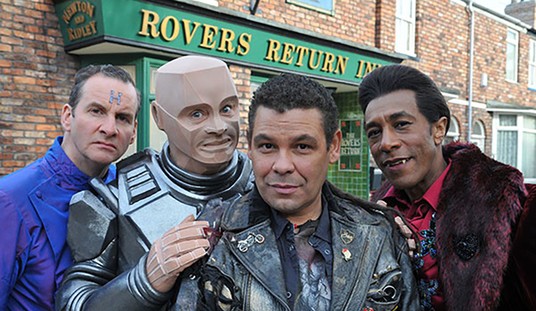There are a few perennial issues that keep coming up in our national and state governments that somehow never seem to get resolved. One such topic that has resurfaced is the debate over the twice-a-year clock shift we call Daylight Savings Time. This debate seems to come around so often that you could set your watch by it. (See what I did there?)
Now President-elect Donald Trump (yeah, still not tired of that) is entering the fray with a call to end this silly practice.
A Republican brouhaha is emerging after President-elect Trump called to eliminate daylight saving time, setting up battle lines between prominent GOP lawmakers in their hopes to lock the clock.
Trump waded into the longtime sore subject Friday, surprising — and perplexing — some lawmakers.
Each side — those in favor of permanent standard time, which means having more light earlier in the day, versus those who want year-round daylight saving time and more light in the evenings — insists that Trump is in their camp.
“I’m confused,” said Rep. Greg Steube (R-Fla.), a major proponent of the Sunshine Protection Act, a bill that would make daylight saving time permanent but allow states to opt in to standard time. “I think he just doesn’t want the clocks to go back and forth.”
That would be preferable, yes. Personally I'd prefer standard time be made permanent; there's a reason they call it standard. But I'd be willing to take either, as long as we can cease this silly practice of resetting our clocks twice a year. Granted, Congress really has bigger fish to fry, but this seems like a no-brainer that could be swiftly and easily dealt with.
But, of course, there are always advocates for the status quo.
The National Association of Convenience Stores in 2022 said it supported a move to year-round daylight saving time, saying that “the extra hour of daylight is a boost for business.” But the American Academy of Sleep Medicine has called for a switch to permanent standard time, saying in 2020 that darkness in the morning and more light in the evening results in “disrupting the body’s natural rhythm.”
Of course, the shift to daylight savings in no way provides an "extra hour of daylight." It just shifts the clock ahead an hour to move the hours of daylight into the evening. And, speaking as a biologist, yes, people's "natural rhythms" - they are called circadian rhythms - can be bollixed up by a clock change, although I can tell you that it's not a patch on how a long international plane trip can mess up your internal clock.
See Related: Meet the American Who Calibrated the Clock of the World
Daylight Savings Time Ends Nov. 3rd - Why Not End It for Good?
This is, of course, all arbitrary in any case. The only reason we even have a 24-hour clock, instead of, say, dividing the day up in tenths, is because the ancient Egyptians, who used a base-12 mathematical system, started things off that way and for whatever reason, it seems to have stuck. The reason each hour and each minute is divided into 60 is from the Greeks, who used a base-60 system borrowed from the Babylonians for astronomical calculations - and that seems to have stuck as well.
So, yes, it's all arbitrary. It's all a human invention. But the whole daylight savings thing has outlived any usefulness it ever had. Enough is enough. Pick a time and make it the standard, and let us get away from the whole "spring ahead, fall back" horse squeeze.















Join the conversation as a VIP Member